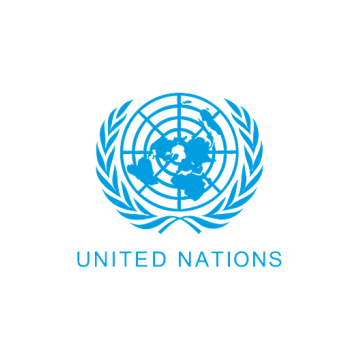The United Nations has raised an urgent alarm about the potential reversal of progress made in reducing maternal deaths worldwide, attributing the threat to unprecedented cuts in global health funding. According to a new report released on Monday to mark World Health Day, significant gains in maternal health could be wiped out, particularly in vulnerable regions that already face critical healthcare challenges.
World Health Day, celebrated annually on April 7, aims to spotlight pressing health issues and galvanize global efforts to tackle them. This year, the World Health Organization (WHO) chose the theme “Healthy Beginnings, Hopeful Futures” to emphasize the importance of improving maternal and newborn health.
The UN’s latest report highlights the progress made over the past two decades, showing a global decline of 40% in maternal deaths between 2000 and 2023, largely due to improved access to essential health services. However, the report warns that the pace of improvement has slowed drastically since 2016, with an estimated 260,000 women dying in 2023 from complications related to pregnancy or childbirth. This figure equates to one maternal death every two minutes.
A major contributing factor to the stagnation in progress is the ongoing humanitarian funding cuts, which are severely affecting healthcare services worldwide. These cuts have resulted in the closure of healthcare facilities, a shortage of healthcare workers, and disruptions in the supply of critical medicines and supplies, such as treatments for haemorrhage, pre-eclampsia, and malaria—the leading causes of maternal deaths.
The WHO cautioned that without urgent action, many countries, especially those facing humanitarian crises, will see an increase in maternal deaths. These regions, where maternal health services are already stretched thin, could suffer even greater setbacks, putting the lives of pregnant women and newborns at even greater risk.
Dr. Tedros Ghebreyesus, WHO’s Director-General, expressed his concern, noting that while the report offers hope, it also underscores the dangerous reality that pregnancy remains life-threatening in many parts of the world. He further emphasized that ensuring access to quality maternity care and strengthening women and girls’ health and reproductive rights are crucial to improving maternal outcomes.
The report also shed light on the devastating impact of the COVID-19 pandemic on maternal survival. In 2021, an estimated 40,000 additional women died due to pregnancy or childbirth-related complications, pushing the total to 322,000 maternal deaths, up from 282,000 the previous year. These deaths were not only caused directly by COVID-19 but also by widespread interruptions to maternity services during the pandemic.
Catherine Russell, Executive Director of the United Nations Children’s Fund (UNICEF), echoed the urgency of addressing the funding shortfalls, stressing that the risks faced by pregnant women, particularly in fragile regions, are growing as global health funding declines. “When a mother dies in pregnancy or childbirth, her baby’s life is also at risk. Too often, both are lost to causes we know how to prevent,” Russell said. She called for urgent investments in midwives, nurses, and community health workers to ensure every mother and baby has the chance to survive.
The UN report also highlighted persistent regional inequalities in maternal health outcomes. Sub-Saharan Africa, despite achieving a 40% reduction in maternal mortality between 2000 and 2023, still accounts for approximately 70% of global maternal deaths in 2023. This region’s progress has been hindered by high poverty levels, multiple conflicts, and a lack of sufficient healthcare infrastructure.
In contrast, other regions, such as Northern Africa, Western Asia, and parts of Latin America and the Caribbean, have seen stagnation in maternal mortality rates since 2015, indicating that progress has slowed or plateaued in those areas.
Dr. Natalia Kanem, Executive Director of the United Nations Population Fund (UNFPA), emphasized that maternal health services should be seen as a fundamental right, not a luxury. “Access to quality maternal health services is a right, not a privilege,” Kanem stated. “By strengthening supply chains, investing in the midwifery workforce, and gathering the data needed to identify those most at risk, we can end the tragedy of preventable maternal deaths.”
As the world marks World Health Day 2025, the UN and WHO have called on governments, donors, and healthcare providers to urgently invest in maternal health systems. This is critical not only for safeguarding the lives of women and newborns but also for ensuring the well-being of future generations and building healthier societies globally.
